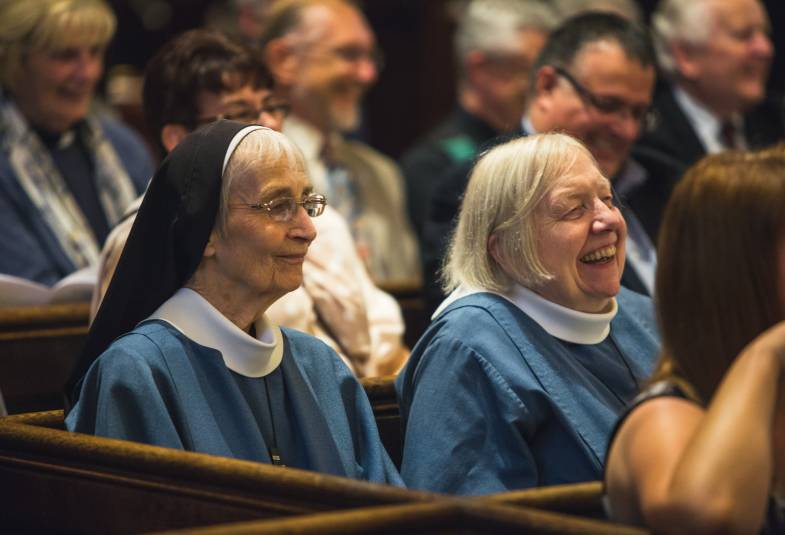
Members of a religious community, such as monks or nuns, live according to the gospel of Christ with prayer as a regular part of daily life. Some give the opportunity of life-long commitment after several years of training and discernment.
In most communities, promises are taken or vows made in community before God and the church. These vows differ by community, but all include:
- Living a simple life and sharing possessions (poverty)
- Refraining from sexual or exclusive relationships (chastity)
- Setting aside the freedom to do as we please and instead committing to listening to others (obedience).
All these vows usually, but not always, are made for life and involve deep and positive values of attending to God and living together. The Religious life is demanding yet joyful, a way to find God and relate to the challenges of today’s society.
History
God has called many people through centuries to live this life. Among Anglicans though there were no nuns and monks until the mid-19th century. Then the revival of Religious communities was embraced by the Victorians as a way of mission and service.
Of the many communities founded, some pioneered nursing or education for the poor, or reached out to wayfarers. Others concentrated on evangelistic work both in Britain and overseas. All led a dedicated life of prayer alongside their ministries, and some developed into places devoted to prayer alone.
Community life
Most communities are women only or men only; some are of both. Some wear distinctive clothes (a ‘habit’), others do not. Some are engaged in the world, others are more oriented to prayer. Members of communities can be lay or ordained.
Community life – like family life – is not always easy, but the practice of loving forgiveness builds bonds that go beyond difference. This is a witness to a fragmented and divided society.
In general, religious communities can be described as either active, contemplative, or new:
Joining a religious community
Do you believe God is calling you to serve in community? Your starting point is to meet your own vicar, chaplain or equivalent, or talk with them about your sense of calling. You should also arrange to meet with the vocations team in your diocese.
The best way forward for anyone interested in the life is to visit different communities and experience the way of life as a visitor first. Many communities provide opportunities for people to live alongside them for longer periods of time. Participants commit to helping with the work of the monastery or community – and there is no obligation to join the community afterwards unless the person wishes to explore further.
Learn more religious communities on the Anglican Religious Communities website, and for an initial conversation about life in a religious community, contact [email protected].